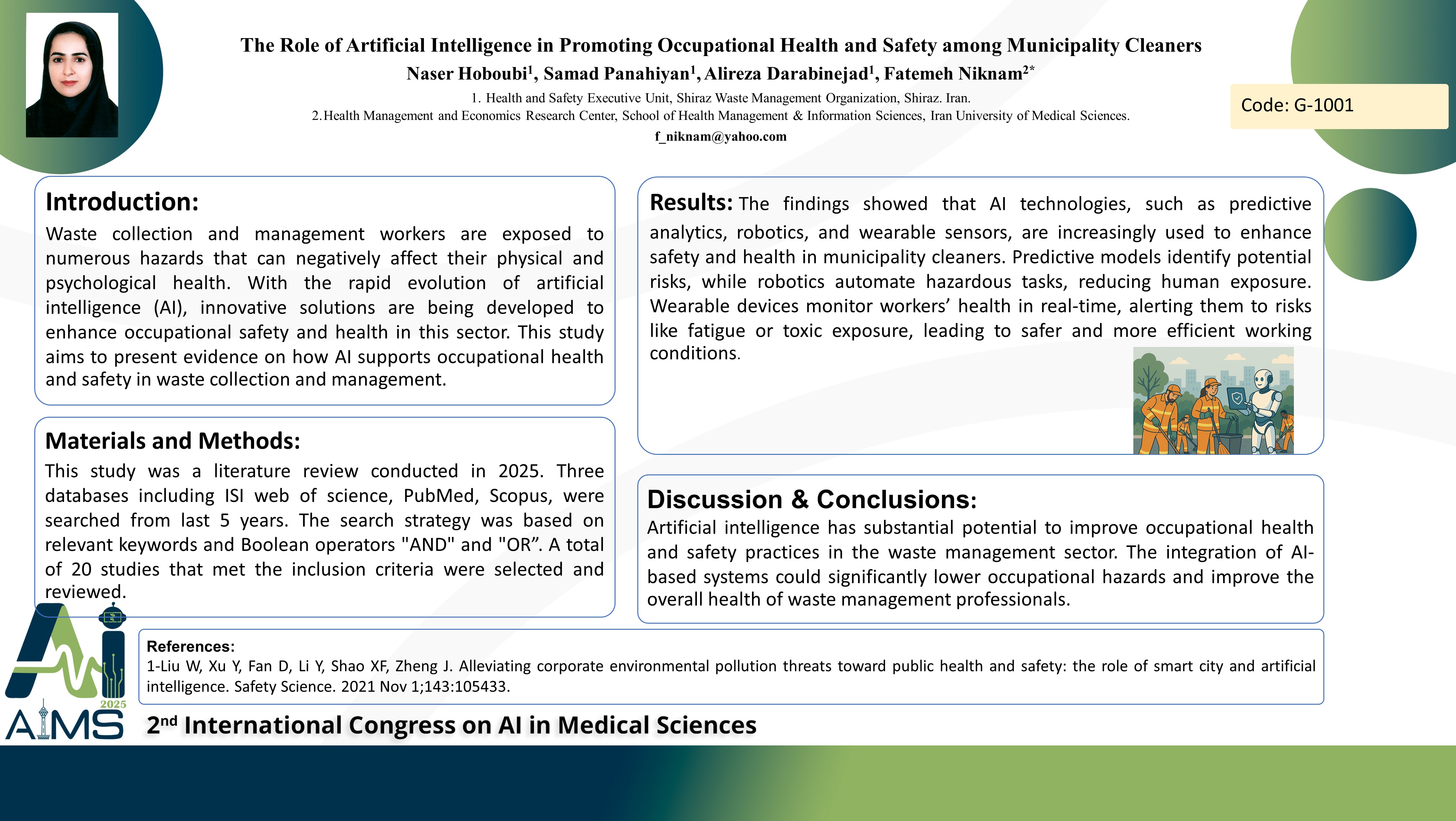The Role of Artificial Intelligence in Promoting Occupational Health and Safety among Municipality Cleaners
Code: G-1848
Authors: Naser Hoboubi, Samad Panahiyan, Alireza Darabinejad, ّFatemeh Niknam * ℗
Schedule: Not Scheduled!
Tag: Intelligent Virtual Assistant
Download: Download Poster
Abstract:
Abstract
Background: Waste collection and management workers are exposed to numerous hazards that can negatively affect their physical and psychological health. With the rapid evolution of artificial intelligence (AI), innovative solutions are being developed to enhance occupational safety and health in this sector. This study aims to present evidence on how AI supports occupational health and safety in waste collection and management. Methods: This study was a literature review conducted in 2025. Three databases including ISI web of science, PubMed, Scopus, were searched from last 5 years. The search strategy was based on relevant keywords and Boolean operators "AND" and "OR”. A total of 20 studies that met the inclusion criteria were selected and reviewed. Results: The findings showed that AI technologies, such as predictive analytics, robotics, and wearable sensors, are increasingly used to enhance safety and health in municipality cleaners. Predictive models identify potential risks, while robotics automate hazardous tasks, reducing human exposure. Wearable devices monitor workers’ health in real-time, alerting them to risks like fatigue or toxic exposure, leading to safer and more efficient working conditions. Conclusion: Artificial intelligence has substantial potential to improve occupational health and safety practices in the waste management sector. The integration of AI-based systems could significantly lower occupational hazards and improve the overall health of waste management professionals.
Keywords
Artificial Intelligence, Occupational Health and Safety
